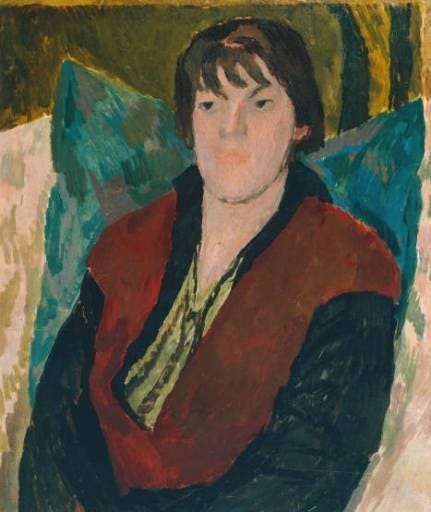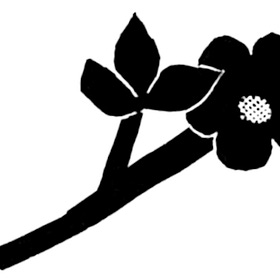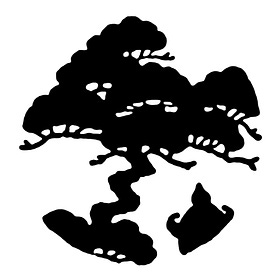The Dudley Sisters - 5 Short Poems (1914-1923)
Forgotten Poems #63: Dorothy, Helen, Caroline, & Katherine
The Dudley sisters were “famous in Chicago’s literary circles for their wit, exuberance, and talent.” (Poetry Foundation, 2024) Dorothy and Helen were poets, Caroline also wrote poetry and worked in the theatre, while Katherine was an illustrator and painter. Dorothy and Helen were published in the first issue of Harriet Monroe’s Poetry magazine in 1914, and were part of the first-wave of post-1913 ‘new’ and ‘free verse’ poets.
Branch (1923) —Dorothy Dudley Dreams are not enough. Dreams are too much. I want surfaces, curves, bone, structure. These blossoms on each drift of wind, These fireflies in and out of the corn, These fairies, are too much, are not enough. Why not the red branch of life now? Why not the red arrow, pinning close to earth, Sending speech to the stars?
Dorothy Dudley was, “Born in 1884 in Chicago. Her poems, and reviews, have appeared in Poetry and in other magazines. To Emanuel Carnevali's book of fiction and poetry, she contributed the preface,” (The Dial, 1927) and Carnevali dedicated the poem ‘The Return’ to Dudley. Recently, “returned from New York to her former residence in Geneva, Illinois.” (Poetry, 1923) Also lived in Paris for a time, with her family. Friends with Harriet Monroe, through whom she befriended and corresponded with fellow poets Marianne Moore, Edwin Arlington Robinson, Edgar Lee Masters, Gertrude Stein, Carl Sandburg, et al. (Elisa Rolle, Queer Places) Became close with Theodor Dreiser, and in 1932 published a biography about him.
“Art begins to be born. Once rid of the religions and the philosophers, art is the one thing that can save the world. Art is the plank after the shipwreck, that saves someone . . .” (‘Brancusi’, in The Dial, 1927)
Chaotic Peace (1916)
—Caroline Dudley
I think of nothing—
My mind leaps from mountain to mountain,
Then drifts upon calm water.
I hear nothing—
Only the waves and the winds,
Violent and caressing.
I feel nothing—
My blood runs under my skin
Like a forest-fire underground.
The Creative Fire (1914)
—Caroline Dudley
If I cannot make out of words
Verses eternal, enduring all death;
If I cannot blend out of color
Tones to liven the eyes,
To quicken the heart
With their various contrasts;
If I cannot carve out of marble
Beautiful breathing bodies;
God give me the power
To mould in my womb
Women and men.
May beauty be born of my breath,
Whether to live like a star,
Whether to die like a flower—
Some beautiful breathing form.
Caroline Dudley was; “A graduate of [the women's liberal arts college] Radcliffe. She has contributed occasionally to poetry magazines, but makes her chief work the art of costume and decoration” in the theatre. (The Poetry Journal, 1915)
Song (1914)
—Helen Dudley
A few more windy days
Must come and go their ways,
And we will walk
My love and I
Beneath the amber-dripping boughs.
Then on the stars we'll tread,
On purple stars and red,
And wonder why
The while we talk
Men sing so much of broken vows.
Cootham Lane (1920) —Helen Dudley Twilight has encircled The flowers in the garden, And the sky is dim and faint. The flowers are as cold as alabaster, And luminous like paint Of an old Venetian master. In the church across the fields They are asking pardon. And in twilight Comes the echo Of an ancient door that closes, And the echo of their voices. For now they go, the villagers— Along the road they go again, Under the unrepentant stars, Across the fields and through the lane.
Helen Dudley studied at Bryn Mawr College, and then Oxford University; published in Poetry magazine, and the landmark anthologies The Answering Voice: Love Lyrics By Women (ed. Sara Teasdale, 1917), and The New Poetry (ed. Harriet Monroe & Alice Corbin, 1917).
Haikai Sonnet For the Dudley Sisters by Dick Whyte released & set to spinning in waves atom after atom after atom makers of the all folded sound— akin to wind leaving the trees, sparrows already asleep
NOTE: This form combines the 14-line structure of the sonnet, with stanzas modelled on haikai (three haiku/tercets, finished with a tanka/cinquain; which is itself comprised of a tercet and couplet). Please feel welcome to try it out yourself, and make sure to let me know if you do!
Forgotten Poets Presents:
Forgotten Poems, a living anthology of obscure and out-of-print poetry from the late-1800s and early-1900s. Explore the archives:
Betty Earl - The Shell and the Tear (1922)
—: The Shell and the Tear :— I shaped a poem from a shell; Its fragile curves I loved full well. I shaped another from a tear— A little human sorrow-sphere. The first was formed with matchless grace...
More poems about mountains . . .
Virginia McCormick - Mountains (1922)
—: Mountains :— I turn my back upon the mountains, The lazy mountains Sleeping in the sun. They bring me peace, A profound satisfaction with self, A desire to rest always In the shadow of their beauty...
Charl Nolan - For Claire (1924)
—: For Claire :— Think of a city maple many of many scoffing the wind and rain and roar of the seasons, proud, strong, certain...
More poems about twilight . . .
Helen Birch Bartlett - October in Illinois (1926)
—: October in Illinois :— October— A blood-red line, Low in the western sky— Grey everywhere— Cold and clear The frozen yellow fields— Nearness and distance interchangeable...
Gwendolyn B. Bennett - Moon Tonight (1927)
—: Moon Tonight :— Moon tonight— Cool as a forgotten dream, Dearer than lost twilights Among trees where birds sing No more...
More poems about gardens . . .
Nina Catherine Howe - Meditation (1926)
—: Meditation :— I have watched a yellow butterfly Flitting among the glories of the poppies In my grandmother's garden— I have breathed the fragrance of elderbloom— I have loved him who is a stranger...
Adolf Wolf - Immortality (1913)
—: Immortality :— At dawn of day the stars die one by one. They only seem to die, but do not die. There is no death for humans, or for stars. What we call life and death is only rhythm...




















What a creative group of sisters! Thanks for shining a light on their work, Dick. Your poem is an excellent tribute. I like the form, too.
Loved this 🩷 You always recommend such great writers 👏🏻